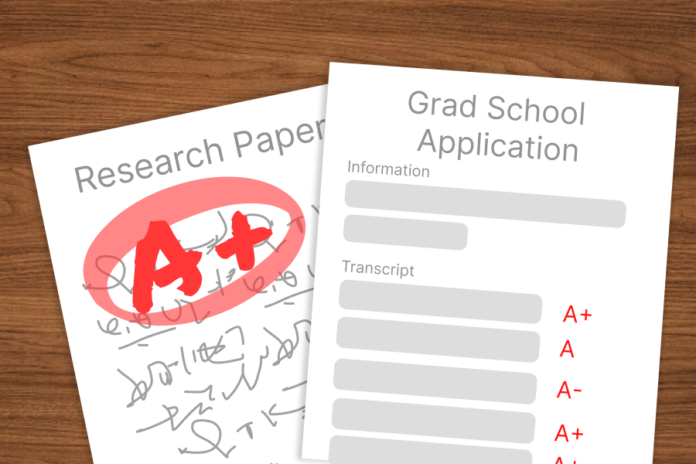Grades aren’t the only thing that matters when applying to graduate school
By JENA TUFAIL — jjtufail@ucdavis.edu
Have you ever taken a course while at university and put enormous pressure on yourself in order to receive the highest possible grade? For individuals who hope to attend a graduate program after obtaining their bachelor’s degree, their most frequent thought when taking classes is: “How do I get an A?”
There is a common fear among students that no graduate education program, whether it be law, medical school or another graduate school, will accept you if you do not have a high grade point average. I’ve been led to believe that one must receive the highest grades possible to have a chance to be accepted into any graduate program.
But while grades are considered in admissions decisions, they are not the only factor. It is important to understand that there are many key factors on your application besides grades that help determine your eligibility for these competitive programs. We must stop putting pressure on ourselves to have “perfect” grades, as there is much more to the application process that admissions counselors look for.
Academic compatibility is also a significant factor in determining who is the “right fit” for a university’s program. If you have similar goals as the department or institution you are applying to and make this apparent in your application, universities will take note of this. Admissions committees want to make sure that you know about the resources and tools that they have available. When applying to graduate programs, it is also important to create general cover letters, as well as statements of purpose, and to tailor these for each program you apply to.
Another part of the graduate school process is to have letters of recommendation from professors. It is important to request these letters from professors who you know will be able to make a strong recommendation on your behalf. These letters not only allow programs and admissions committees to see more of who you are but also show that you have the potential to succeed in their programs.
Professional and other “unique” experiences are also factors that can help your application stand out. Admissions counselors are known to favor individuals who have original or out-of-the-ordinary experiences, as they do not want to only admit people who are all very similar to each other. Your writing samples and interviews (if you have them) are both ways to reveal and expand on these experiences. It is important to use your assets to your advantage and to explain how these make you a great fit for a program — and what you can offer to the program because of them. Professional experiences during your undergraduate career can also show your dedication to the field you are applying to.
Next time you stress about a certain grade or outcome in a course, remember that grades are not the only factor that affects admissions to graduate schools. It is important to enjoy your time during your undergraduate education, find what you love and enjoy your educational experience. Above all, passion for a subject will reveal a lot more about who you are than your transcript can. Remember: don’t lose your passion for the sake of “perfect” grades.
Written by: Jena Tufail — jjtufail@ucdavis.edu
Disclaimer: The views and opinions expressed by individual columnists belong to the columnists alone and do not necessarily indicate the views and opinions held by The California Aggie.




